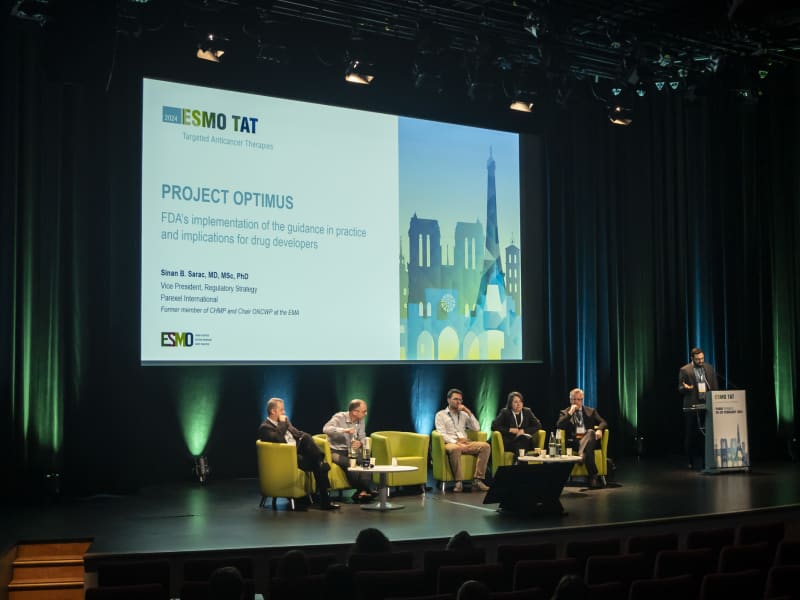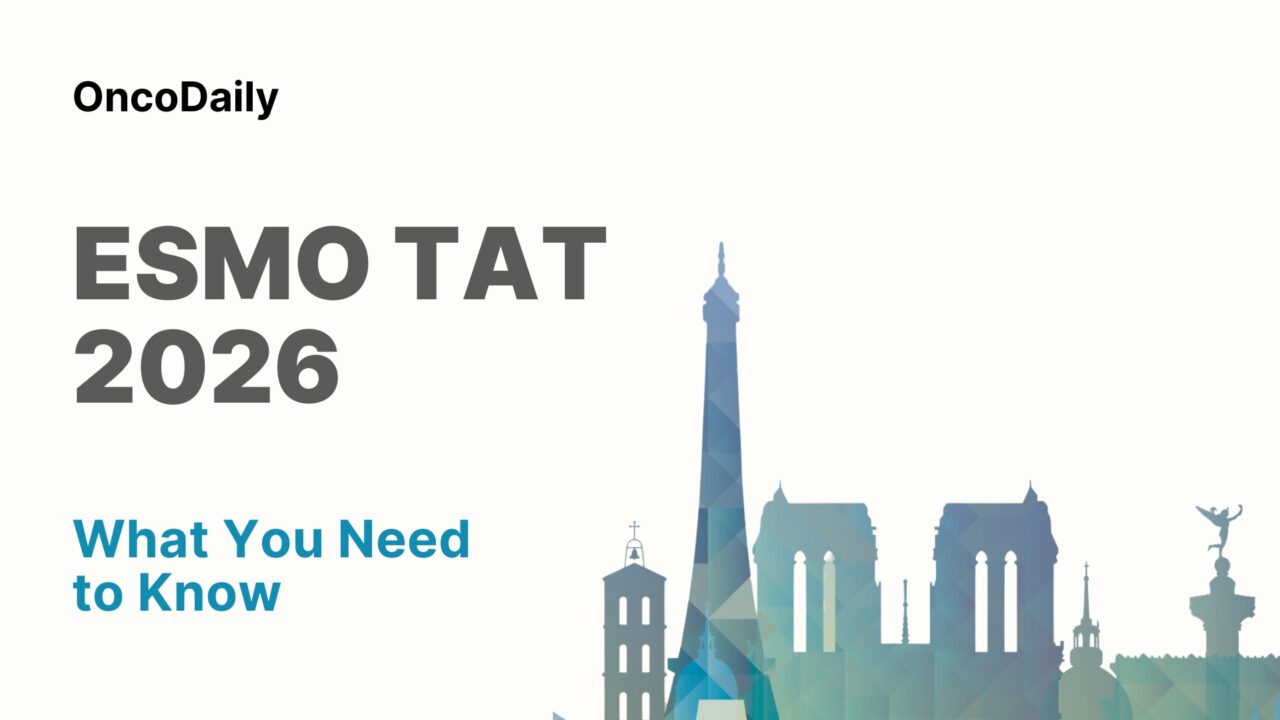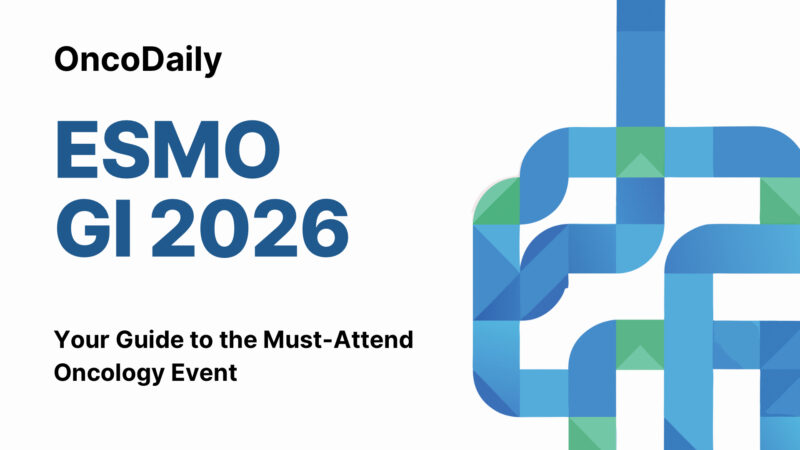The ESMO TAT 2026 (Targeted Anticancer Therapies Congress) — will take place from 16 to 18 March 2026 in Paris, France, bringing together global experts in early-phase oncology drug development. As one of the most forward-looking meetings in the ESMO calendar, TAT 2026 will serve as a hub for innovation in targeted therapies, translational research, and precision oncology.
With a strong focus on first-in-human trials, novel biomarker strategies, and emerging therapeutic targets, ESMO TAT 2026 is uniquely positioned at the intersection of science and clinical application. The congress will foster dialogue between academic researchers, industry leaders, regulators, and clinical trialists, aiming to accelerate the development of next-generation cancer treatments.
Evolution of ESMO
Founded in 1975, the European Society for Medical Oncology (ESMO) has grown into a leading force in advancing cancer research, treatment, and patient care. Initially focused on fostering collaboration among oncologists, ESMO has evolved into a global platform driving innovation, policy reform, and equitable access to cancer care.
In its early years, ESMO concentrated on strengthening medical oncology as a specialty, laying the foundation for evidence-based cancer treatment. By the 1990s, the society expanded its reach with educational programs, including the ESMO Preceptorships and the development of ESMO Clinical Practice Guidelines, setting standards for cancer management worldwide.
ESMO TAT Mission and Vision
The ESMO Targeted Anticancer Therapies (TAT) Congress brings together the people who move early drug development forward scientists, clinicians, regulators, and industry experts. It’s where new treatment strategies are explored, shared, and refined, with a strong focus on first-in-human trials and biomarker-driven approaches.
Key Highlights From Past ESMO TAT Meetings
Here are some key highlights and important trial results from past ESMO TAT 2025 meetigs.
- André F, et al. Trastuzumab deruxtecan (T-DXd) ± pertuzumab (P) in previously untreated HER2-positive metastatic breast cancer (mBC): DESTINY-Breast07 interim results. ESMO TAT 2025; Abstract 7O.
In DESTINY-Breast07, T-DXd alone or with pertuzumab demonstrated high confirmed overall response rates (77.3% and 84.0%, respectively) and 18-month PFS rates (~78%) in previously untreated HER2-positive mBC. Clinical activity was observed regardless of baseline stromal TILs. Safety profiles were consistent with known toxicities, including interstitial lung disease (14.4%). These findings support the potential of T-DXd-based regimens as first-line, chemotherapy-sparing options.
- Cuppens K, et al. First-line datopotamab deruxtecan (Dato-DXd) plus durvalumab ± carboplatin in advanced NSCLC: TROPION-Lung04 results. ESMO TAT 2025, Abstract 8O.
The phase Ib TROPION-Lung04 trial showed that Dato-DXd combined with durvalumab, with or without carboplatin, achieved confirmed response rates of 53.3% and 56.8%, respectively, in untreated advanced NSCLC without actionable mutations. Disease control exceeded 85% in both groups, with median PFS of 7.3 and 8.7 months. Safety was consistent with known profiles; grade ≥3 adverse events were common but manageable. These results support further phase III studies of ADC–immunotherapy combinations in first-line NSCLC.
Key Trials from ESMO TAT 2024
1. ctDNA as a Biomarker
- Several studies suggested that ctDNA could be a valuable tool for assessing early response to new therapies, even in early-phase trials.
Specifically, one study showed that all 7 patients with a partial response to treatment had an early reduction in ctDNA burden.
These findings suggest that ctDNA analysis could help accelerate the assessment of new therapeutics.
2. Emerging Targets and Novel Therapies
- The congress highlighted promising strategies to target emerging actionable mutations in various solid tumors, including MTAP deletion, KRAS G12D, and CDK4/2.
- Some trials reported good tolerability and antitumor activity for novel targeted agents.
- One study focused on targeting the tRNA methyltransferase METTL1 with small molecule inhibitors, demonstrating that METTL1 inhibition can impair cell proliferation and cell cycle progression in cancer cell lines.
3. Artificial Intelligence and Machine Learning
- The congress emphasized the potential of AI and machine learning to unlock new immunotherapy targets and develop more effective treatments.
- One presentation highlighted the use of multi-modal machine learning to process genomic, proteomic, imaging, and functional data, potentially leading to a better understanding of cancer mechanisms.
4. Other Notable Trials and Research
- The congress also showcased data from Drug Rediscovery Protocol-like Clinical Trials (DLCTs), demonstrating the feasibility and efficacy of personalized treatments based on comprehensive genomic profiling.
- A phase III trial in metastatic castration-resistant prostate cancer (mCRPC) explored the combination of cabozantinib and atezolizumab, but the final overall survival analysis did not reach statistical significance.
- The congress also included presentations on the use of immunotherapy in combination with chemotherapy for locally advanced cervical cancer, showing significant overall survival benefits.

esmo.org
“The main challenge in the wider implementation of precision oncology is the considerable variability in patient access both to molecular testing and to approved and investigational agents.
We need novel solutions to improve patient access to molecularly matched therapies, by building national and international networks and moving to patient-centred clinical trial design to minimise logistical obstacles.”Funda Meric-Bernstam – MD Anderson Cancer Center, Houston, Texas, US
ESMO TAT 2026: What to Expect
The ESMO TAT 2026 Congress will bring together global experts to advance early-phase oncology drug development. It will highlight breakthroughs in targeted therapies, precision medicine, and biomarker-driven trials. Key topics include novel agents like antibody-drug conjugates, bispecific antibodies, and cell-based therapies.
The program will emphasize molecular profiling, adaptive trial designs, and AI-driven approaches to optimize treatment. Collaboration between academia, industry, and regulators will be a key focus to accelerate progress in cancer care.
Scientific Co-Chairs Leading Innovation at ESMO TAT 2026
The ESMO Targeted Anticancer Therapies (TAT) Congress 2026 is guided by a distinguished team of leaders dedicated to advancing early-phase oncology research and personalized cancer treatment.
The Scientific Co-Chairs—Elena Garralda (Spain), Carlos Gomez-Roca (France), and Cristian Massacesi (United States)—will steer the congress, shaping discussions on the latest innovations in targeted therapies and drug development.
They are supported by an international Scientific Committee composed of leading researchers and clinicians from across the globe. Bringing together diverse expertise from Europe, North America, and beyond, this group ensures a high-quality program featuring research, clinical advancements, and novel therapeutic approaches.
ESMO TAT 2026 Dates and Location: Registration and Key Information
ESMO TAT 2026 will take place from 16 to 18 March 2026 in Paris, France, welcoming oncology professionals, researchers, and industry leaders from around the world. As a leading congress focused on early-phase clinical trials and targeted therapies, the event will provide a unique platform for sharing cutting-edge research and fostering meaningful collaboration.
Registration Information
As of now, registration details for ESMO TAT 2026 have not yet been released. However, the registration process and benefits from ESMO TAT 2025 can offer a useful preview of what to expect.
Participants were required to have an ESMO account to register, whether individually or as part of a group. Onsite registration included full access to scientific and educational live sessions, opportunities for networking with experts and peers, entry to the poster and exhibition areas, participation in industry satellite symposia, and complimentary coffee breaks and lunches. In addition, registered attendees received post-congress access to webcasts and educational resources on OncologyPRO for a duration of two years.
Registration fees varied depending on ESMO membership status and registration period. For example, ESMO members could register early for €480, with higher rates for late and full registration. Reduced rates were also available for trainees, students, nurses, patient advocates, and attendees from developing countries. Non-members, especially those from academia or the pharmaceutical industry, had different pricing tiers, and special conditions applied to small biotech companies.
Travel insurance was strongly recommended for all participants to protect against unexpected disruptions, cancellations, or medical needs. Registration confirmations and access instructions were sent to delegates via email prior to the congress.
Press Accreditation
ESMO welcomes press representatives interested in covering cancer-related topics. Accreditation is free for those working for ESMO-recognized press outlets upon presenting a letter of assignment and a valid press card (if applicable). Accredited press must adhere to ESMO’s Policy on Press Activities.
To apply for accreditation, press representatives should complete the application form once it opens.
Third-Party Media Activities
Any media events organized by third parties during or around the congress, including press conferences, briefings, and PR activities, must comply with ESMO’s Policy on Media Activities. These activities require prior approval from ESMO, especially if they coincide with the scientific program.
Abstract Submission: Learning from ESMO TAT 2025
As of now, the abstract submission guidelines for ESMO TAT 2026 have not been released. However, the 2025 congress provides a helpful framework for what prospective contributors might expect. In 2025, abstracts were invited in a wide range of cutting-edge categories, including:
- Antibody-based therapies
- Cellular and gene therapies
- DNA damage repair and epigenetics
- Immunotherapy
- Kinase-targeting agents and cell signalling modulators
- Molecular profiling applications
- Artificial intelligence (AI) and digital therapeutics
- Methodological, financial and regulatory aspects
- Miscellaneous topics
Accepted abstracts were selected for Proffered Paper (oral), Mini Oral, or Poster presentations, depending on the quality and originality of the data.
Additionally, a limited number of ESMO Merit Travel Grants were awarded to selected presenters from institutions across the globe, with support from L’Institut Servier. This opportunity not only encouraged international participation but also recognized promising early-career researchers.
Contacts
- Press Office: press@esmo.org
- Third-Party Media Activities: media@esmo.org
- Filming Activities: filming@esmo.org
Beyond the Conference: Must-See Experiences in Paris for Medical Professionals
Paris, a vibrant city known for its rich history, culture, and world-class cuisine, offers plenty of opportunities for doctors and residents attending ESMO TAT 2026 to unwind, network, and explore beyond the congress.
Cultural Experiences
Take a break from the intense scientific program by visiting iconic landmarks such as the Eiffel Tower, Louvre Museum, and Notre-Dame Cathedral. The city’s many art galleries, historic neighborhoods like Le Marais, and charming cafes provide an inspiring backdrop for informal discussions and relaxation.
Medical and Scientific Networking
Paris is home to leading medical institutions and research centers. Consider visiting local hospitals or research facilities to gain insights into French oncology practice and foster international collaborations. Numerous medical bookstores and libraries are also available for deepening your knowledge.
Gastronomy and Socializing
Enjoy Parisian cuisine at bistros and Michelin-starred restaurants. Sharing meals is a great way to build connections with fellow oncologists and researchers. For casual networking, Paris offers a vibrant café culture and wine bars where ideas can flow in a relaxed setting.
Parks and Leisure
For some fresh air and reflection, visit beautiful green spaces like Jardin du Luxembourg or Parc des Buttes-Chaumont. These peaceful spots are perfect for a walk or informal meetings outside the conference venue.
Events and Entertainment
Keep an eye out for concerts, theater performances, and exhibitions happening during the congress dates. Attending cultural events can be a refreshing complement to the scientific agenda.
Parisian Cafés You Can’t Miss
1. Café de Flore
- Why visit: One of Paris’s oldest cafés (since the 1880s), famed for its Art Deco interiors and as a meeting spot for intellectuals like Sartre, de Beauvoir, and Picasso
- Vibe: Perfect for people‑watching from its terrace or soaking in literary atmosphere inside.
2. Les Deux Magots
- Why visit: A historic counterpart located just next door, celebrated for hosting figures such as Hemingway, Joyce, and Camus
- Vibe: Literary elegance and classic Parisian café culture.
3. Café des Deux Moulins
- Why visit: Montmartre gem immortalized in the film Amélie, known for retro charm and excellent croque‑monsieur
- Vibe: Cozy, playful, and nostalgic.
4. Angelina
- Why visit: Opulent Belle‑Époque tearoom, renowned for its indulgent “Chocolat Chaud à l’Africain” and Mont Blanc pastry
- Vibe: Luxurious and timeless, ideal for a decadent break near the Louvre.
5. La Caféothèque
- Why visit: Widely regarded as France’s first specialty coffee shop, offering top‑quality beans with an educational twist
- Vibe: Dedicated coffee culture in a modern, relaxed setting.
Important links:
https://oncodaily.com/blog/esmo-tat-asia-2025-255490
Written by Nare Hovhannisyan, MD



